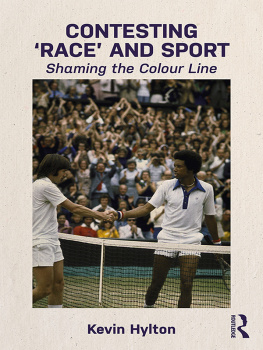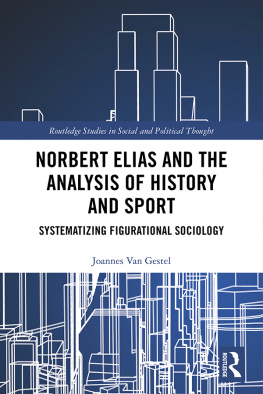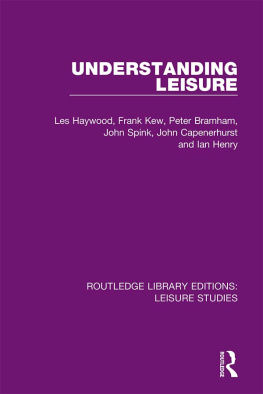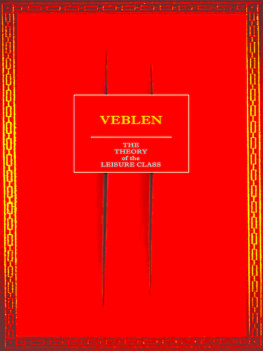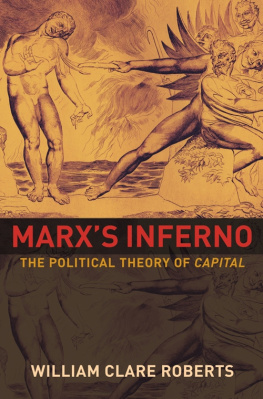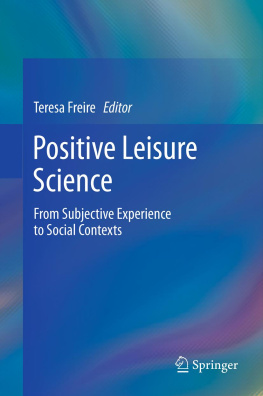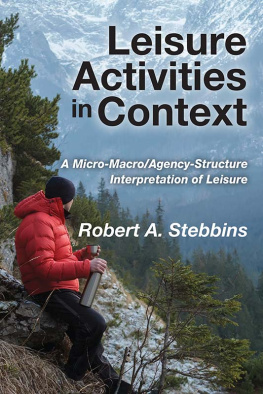
Social Theory, Sport, Leisure
Social Theory, Sport, Leisure offers a clear, compact primer in social theory for students needing to engage with the application of sociological perspectives to the study of sport and leisure. Written in a straightforward style and assuming no prior knowledge, the book offers a fresh and easy-to-read overview of sociologys contribution to sport and leisure studies.
Ordered chronologically, each chapter:
focuses on the work of a major social theorist and their most influential ideas;
provides helpful historical and biographical detail to set the person and their thinking in contemporary context;
identifies questions in sport and leisure on which the theory can shed useful light;
considers how the ideas can be, or have been, applied in the study of sport and leisure;
works as a self-contained unit, enabling students and lecturers to use the book flexibly according to their needs.
Written by an outstanding sociologist of leisure and sport, this intelligent yet jargon-free textbook enables students to get to grips with a wide range of important concepts and understand their diverse applications. As such, it is essential reading for any course designed to explore the place and meaning of sport and leisure in society.
Ken Roberts is Emeritus Professor of Sociology and Research Fellow at the University of Liverpool. He has also contributed to sport and leisure teaching at the University of Chester for over twenty-five years. He is a founder and honorary life member of the Leisure Studies Association, past President of the International Sociological Association Research Committee on Leisure, and past President of the World Leisure Organizations Research Commission. His books have been used on sport and leisure courses for forty years.
This is the best introduction to understanding sport and leisure sociologically for foundation year undergraduates, from the sociologist who established the field of leisure studies.
John Horne, Professor of Sport and Sociology,
University of Central Lancashire, UK
This book makes an enormous contribution to the study of sport and leisure. In his thoughtful, reflective and thorough way, Ken Roberts opens a door for a range of new studies by offering a profound examination of sociological theories and their contribution to these fields. Scholars and students will no doubt treasure this book in their reflection on and inquiry into current issues.
Atara Sivan, Associate Dean, Faculty of Social Sciences &
Professor, Department of Education Studies,
Hong Kong Baptist University, China
This is an outstanding and crucial book for any students wanting to understand sport and leisure through the lens of sociological theory. Roberts writes in a clear and engaging style, showing the reader exactly how different theories and theorists can be used to make sense of sport and leisure.
Karl Spracklen, Professor of Leisure Studies,
Head of the Research Centre for Diversity,
Equity and Inclusion, Leeds Beckett University, UK
For those of us whose background in sociology is limited, Ken Roberts has produced an invaluable resource. He offers a concise review of the seminal lines of sociological thought, which facilitates easy access to them; shows how they interrelate; and offers insights on how each of them have been, and potentially could, enhance our understanding of leisure behavior. It is relentlessly positive in perspective, emphasizing the potential contributions of each of the lines of thought, and resisting the temptation to promote some at the expense of others. When I entered this field in the late 1960s, Ken Roberts was one of the small number of academics who were pioneering the study of leisure. I can think of nobody else in the field who is as well-equipped to produce this resource. It is written in his usual lucid prose in a highly readable style. In my view, it is an instant classic in the field and will be as relevant in 20 years time as it is today.
John Crompton, University Distinguished Professor,
Regents Professor, and Presidential Professor for
Teaching Excellence, Texas A&M University, USA
Social Theory, Sport, Leisure
Ken Roberts
First published 2016
by Routledge
2 Park Square, Milton Park, Abingdon, Oxon OX14 4RN
and by Routledge
711 Third Avenue, New York, NY 10017
Routledge is an imprint of the Taylor & Francis Group, an informa business
2016 Ken Roberts
The right of Ken Roberts to be identified as author of this work has been asserted by him in accordance with sections 77 and 78 of the Copyright, Designs and Patents Act 1988.
All rights reserved. No part of this book may be reprinted or reproduced or utilised in any form or by any electronic, mechanical, or other means, now known or hereafter invented, including photocopying and recording, or in any information storage or retrieval system, without permission in writing from the publishers.
Trademark notice: Product or corporate names may be trademarks or registered trademarks, and are used only for identification and explanation without intent to infringe.
British Library Cataloguing-in-Publication Data
A catalogue record for this book is available from the British Library
Library of Congress Cataloging in Publication Data
Names: Roberts, Kenneth, 1940- author.
Title: Social theory, sport, leisure / by Ken Roberts.
Description: 1 Edition. | New York : Routledge, 2016.
Identifiers: LCCN 2015042823| ISBN 9781138936720 (hardback) | ISBN 9781138936737 (pbk.) | ISBN 9781315676661 (ebook)
Subjects: LCSH: Social sciencesPhilosophy. | LeisureSocial aspects. | SportsSocial aspects.
Classification: LCC H61 .R595 2016 | DDC 300.1dc23
LC record available at http://lccn.loc.gov/2015042823
ISBN: 978-1-138-93672-0 (hbk)
ISBN: 978-1-138-93673-7 (pbk)
ISBN: 978-1-315-67666-1 (ebk)
Typeset in Scala
by Swales & Willis Ltd, Exeter, Devon, UK
Auguste Comte (17981857), a Frenchman, coined the term sociology, and is therefore generally regarded as having founded the subject which since then has been the home of social theory. Because sports and all other leisure activities are social inventions, sociology is their natural academic home. Nearly all our modern sports, and many other modern leisure activities such as the holiday away from home, were invented in nineteenth-century Europe, in countries that were becoming industrial and urban. Sociology was born in response to, and as attempts to explain, these social transformations. However, it was over one hundred years after Comtes death in 1857 before sociologists collectively began to study any leisure activities. This neglect of leisure was not peculiar to sociology. None of the social sciences paid significant attention to frivolous pastimes before their economic importance was recognised, which was towards the end of the twentieth century. By then the most advanced economies were becoming post-industrial, and leisure goods and services were increasingly important as sources of employment and contributors to countries trade balances. Hence the explosion of student numbers and courses with leisure, recreation, sport, media, tourism and events in their titles. All these courses expect an input from sociology, including its theories about the character of the societies in which sport and the rest of leisure are located. The problem is that from Comte onwards hardly any of the major social theorists wrote anything about any kind of leisure. Even so, this book will show that the theories can be made to speak about sport and leisure. They can be used to find answers to questions that sport and other leisure scholars are already addressing, and to pose entirely new questions.




